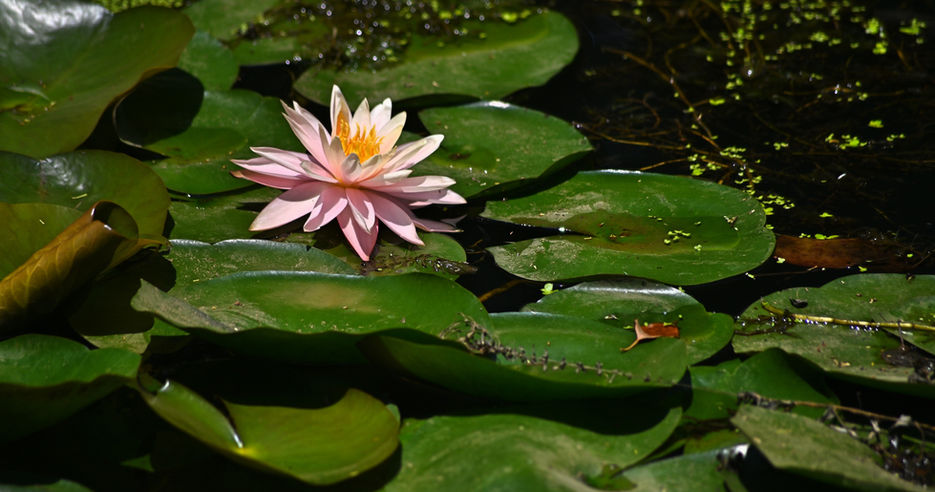(Summer) Wuhan Lotus Flower
Lotus
a symbol of purity and resilience
Wuhan’s Lotus Culture & Hubei: The Land of a Thousand Lakes
Known as the "City of Lakes," Wuhan honors the lotus flower (荷花, héhuā) as a timeless symbol of purity, resilience, and harmony with nature. Each summer, the city’s lakes and parks burst into vibrant pink and green hues, creating breathtaking landscapes that attract visitors from near and far to witness this stunning natural spectacle.
Beyond its beauty, lotus holds a special place in local culture and cuisine. In Hubei, lotus root soup is a beloved winter staple, celebrated not only for its delicious flavor but also for its traditional reputation in nourishing the lungs—a perfect example of how nature’s gifts are deeply woven into the region’s wellness and lifestyle.

East Lake Lotus Festival:
Held at East Lake Scenic Area (China’s largest urban lake), the festival features boat tours through lotus fields, photography contests, and lotus-themed delicacies like sticky rice stuffed in lotus leaves.
Lotus Landscapes of Wuhan:
Moshan Lotus Garden:
Home to over 700 lotus varieties, including rare species like the double-petaled “King Lotus.”
Shahu Park:
Stroll along boardwalks as lotus blossoms tower overhead, creating a fairytale-like ambiance.
Cultural Symbolism of Lotus:
In Chinese poetry, the lotus represents integrity and rebirth. Wuhan’s lotus culture is deeply tied to its identity as a water city, thriving despite seasonal floods.
Best Time to Visit in Wuhan for Lotus:
Mid-June to August, when flowers peak under the summer sun.
Hubei: The “Land of a Thousand Lakes”
Hubei Province, where Wuhan is located, earned its nickname “千湖之省” (Qiān Hú zhī Shěng) for its once-abundant lakes. Though urbanization has reduced their number, over 700 lakes remain, shaping the region’s ecology, economy, and way of life.
Why “Thousand Lakes”?
Historical Legacy: Hubei sits at the heart of the Yangtze River Basin, where ancient floodplains and river networks created countless lakes.
Ecological Powerhouse: Lakes like Honghu Lake (Asia’s largest wetland) and Liangzi Lake support biodiversity, including migratory birds and endangered species like the finless porpoise.
Economic Lifelines: These lakes sustain fisheries (famous for Wuchang bream and lotus root), agriculture, and water transport routes.
Cultural & Modern Significance:
Water Towns: Villages like Jingzhou and Xiantao retain traditions of fishing, lotus farming, and dragon boat racing.
Environmental Efforts: Hubei leads in wetland conservation, with projects like East Lake’s ecological restoration balancing tourism and sustainability.
Tourism Gems: From the crystalline waters of Shennongjia’s alpine lakes to Wuhan’s urban lakeside parks, Hubei offers serene escapes.
The Harmony of Lotus and Lakes
In Hubei, lotus blooms and shimmering lakes are inseparable. Lotus roots (a local culinary staple) grow in lake mud, while floating blossoms purify water and inspire art. Together, they embody a delicate balance between human livelihood and nature’s bounty.
Visit to Experience for Lotus in Wuhan:
-
Lotus Harvesting: Join farmers in August-September to dig for fresh lotus roots, a crunchy delicacy.
-
Lakeside Cycling: Explore East Lake’s 100+ km greenways, passing lotus ponds and willow-lined shores.
-
Festivals: The Honghu Lotus Festival showcases lotus-themed dances, lanterns, and lake-to-table feasts.
Hubei’s lakes and Wuhan’s lotus culture are more than scenic wonders—they are living narratives of adaptation, tradition, and ecological harmony.
Did You Know?
Hubei’s lotus root soup is a winter favorite, believed to nourish the lungs—a perfect blend of flavor and wellness rooted in lake culture!

Book a Tour With Us
Unlock Wuhan’s Secrets: Premium Tours with Certified English Guides
Why Choose Our Expert-Led Excursions in Wuhan?
1. "Living Guidebook" Depth
2. Zero Language Barrier
3. Safety Guarantee & Quick Access
4. Hyperlocal Story Weaving
Upgrade Your Trip with One Click:
Don’t just see Wuhan – converse with it through certificated guide who speak it in depth.
Book Now →



1 hr
from 600-30002 hr - 8 hr
From 1,200人民币Loading days...
200人民币
(Summer) Wuhan Lotus Flowers: A Tranquil Summer Escape
During the summer months, Wuhan's lotus flowers bloom in full glory, creating a serene and picturesque environment at some of the city's most beautiful lakes and parks. The sight of delicate pink and white lotus flowers floating on still waters is a summer spectacle that offers visitors a peaceful retreat from the urban hustle. Whether you enjoy a boat ride or a quiet walk through the gardens, the lotus flowers are a must-see in Wuhan.
-
East Lake (Donghu Lake) – A prime location for lotus flower viewing
-
Moshan Hill – Explore the beauty of lotus flowers along scenic walking paths
-
Nature and Outdoor Activities in Wuhan – Enjoy summer strolls, boating, and photography
-
Must-Sees in Wuhan – Top attractions to experience during lotus season
-
Wuhan Nature Trails – Discover hidden gems filled with lotus blooms
Explore more with our summer itineraries, photography spots, and nature tours to fully experience Wuhan's lotus season.
































